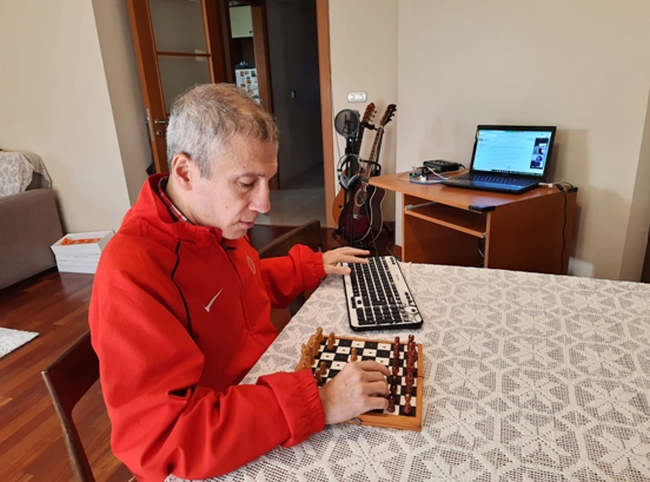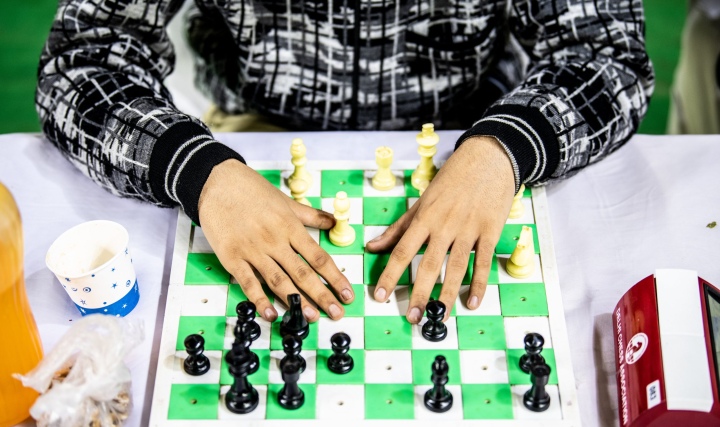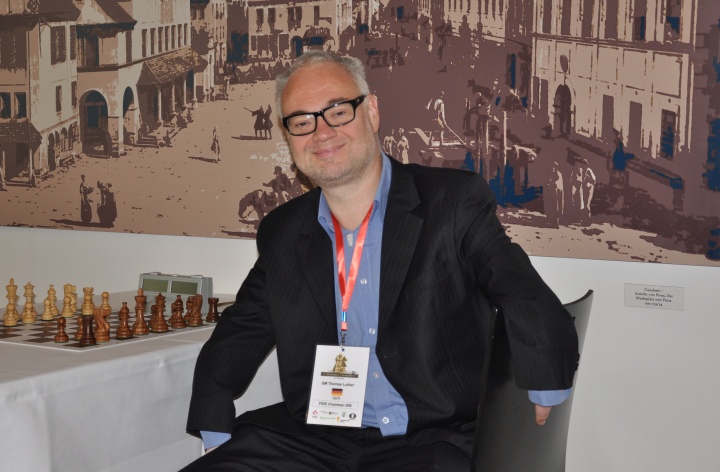By Milan Dinic
The first-ever Chess Olympiad for people with disabilities represents a historic event for FIDE and the chess world. Over 100 players from 33 countries will gather in Belgrade, Serbia, making a landmark moment for the chess world as the Chess Olympiad for people with disabilities becomes a part of the Chess Olympiad family.
From the 29th of January to the 5th of February the Serbian capital will host the first chess Olympiad for people with disabilities. This is a watershed moment for the chess world as it inaugurates the biggest chess event dedicated to people with disabilities.
 Photo: guide.michelin.com/
Photo: guide.michelin.com/
Thirty three countries and three international squads have registered to take part in this team competition. They are led by Poland, the winner of the 2020 Online Olympiad for people with disabilities, and Hungary, the two highest-rated teams.
A historic event
At the end of 2020, FIDE organised the world’s first Online Olympiad for people who have disabilities. In November 2021 the 4th FIDE World Championship for people with disabilities was held online, with the participation of 249 players from 44 different countries. Moving from online to the over-the-board format has been one of the priorities of the International Chess Federation.
Following the success of the First Online Olympiad for people with disabilities and the World Championship, FIDE focused on the ambition of organizing this competition live, in person or, as the chess community calls it – over the board.
Empowering people with disabilities
While teams from the IPCA, IBCA, and ICCD have traditionally been invited to compete in the Chess Olympiad, FIDE believes that having their own dedicated international tournament will allow many more people with disabilities to meet, connect, compete, and enjoy a chess event in the true Olympic spirit.
“Chess is a unique sport where disabled people can reach a high professional level and flourish both as players and as individuals. We want to encourage that further! FIDE is fully dedicated to making chess inclusive and accessible to everyone. In particular, we want to give the deserved spotlight to those who face different daily challenges than most of us, and whose inspiration to rise should be noted, respected and celebrated”, FIDE President Arkady Dvorkovich said.
Dvorkovich noted that despite difficult times, FIDE has managed to pull through and fulfill its commitment to organising this Olympiad. He added that this is one of the most important events for FIDE this year and one of our key priorities in the long run.
“While this Olympiad is not on a scale like the traditional Chess Olympiad, it is a hugely important step, and we will do our best to make it a successful one. We hope that over the coming days players and their team members and assistants as well as spectators will truly enjoy the event in Belgrade.
This is a unique opportunity to gain a better understanding of how to work together in making chess truly inclusive and to do our best to overcome any life obstacle so that we all feel the spirit of Gens Una Sumus (FIDE’s moto meaning We are one people) among us”, Dvorkovic added.
From the Online to the Over-the-Board Olympiad
The first Online Chess Olympiad for those with disabilities took place from 20th November through 3rd December 2020. It was organised to coincide with the United Nations International Day of Persons with Disabilities. The online Olympiad saw 61 teams from 45 countries, with altogether nearly 400 players taking part. Poland took gold after defeating Russia in the final.

The event was hailed as a great success by both the players and the organisers. The real challenge was to get a live, in-person, event – where people can come together.
While this was not possible during the height of the Covid pandemic, as the restrictions and the impact of the virus eased FIDE made organising this Chess Olympiad a priority.
Unlike in other chess tournaments, events for people with disabilities or impairments require a slightly different setting: from specialized boards and chess clocks to special score-sheets and audio/visual equipment, to in-person assistance and ease of access as well as more supporting staff and medical support.
FIDE has developed comprehensive guidelines to facilitate the participation of people with disabilities in any official chess competition. These guidelines can be found in the FIDE Handbook.

Serbia – a country with a strong chess tradition and experience in organizing sports events (including two Chess Olympiads) – was chosen to host the inaugural Olympic event. With the support from the Government of Serbia and local companies, and under the auspice of the Serbian Chess Federation, FIDE feels that it has established a strong partnership which can successfully deliver on organising such an important event. The hope is that this Olympiad will serve as a springboard for advancing chess and improving conditions for players with disabilities, by providing them opportunities to voice their opinions and show their flair both on and off the board.
High hopes and a look towards the Paralympics
Grandmaster Thomas Luther is the head of the FIDE Commission for players with disabilities. He had an instrumental role in securing that the first Olympiad for people with disabilities is organized to the standards and the specific needs of the participants.
 Photo: Karsten Wieland
Photo: Karsten Wieland
“This is an exceptional tournament where the spotlight will be on people with disabilities. We got this idea from the Paralympic movement which is big in the news and is helping people who usually don’t get the spotlight, to show what they can do. We want to make chess part of the Paralympic Games. This is one of the ideas FIDE has and we don’t want to give up on this”, says Thomas.
He has huge hopes for the future of this event: “This is the first time an Olympiad for people with disabilities is being organised. When the first chess Olympiad was organised just 16 nations took part. In the last chess Olympiad in Chennai more than 180 nations took part. In the first Olympiad for the disabled, we have 23 teams and over the years the numbers will surely grow!”
“Chess helped me find my place in life and society”
Despite being born with a physical impairment, Thomas Luther rose to prominence in an incredibly competitive field. He is a three-time German Champion (1993, 2002, 2006) and reached the top 100 in the world ranking with a peak Elo of 2604. He was a part of the German team that won silver in the 34th Chess Olympiad in Istanbul in 2000.
Thomas started to play chess at the age of four and joined a chess club at the age of nine.
“Kids with a disability have a negative outlook on life. Many struggle to find their place. Chess helped me find my place in life. Through chess, I participate in society and that is the key thing. Even back in the 1970s when I started playing, chess clubs were more inclusive than schools.”
In his view, the social aspect is key for this event.
“Foremost, this is a social event. Despite all the problems these people have in life, they managed to come – some travelling many thousands of miles – and play chess at a decent level. That is just amazing”.
What is specific about this tournament is that all the players will have some sort of disability – the number and type of assistance needed will be huge – from special boards and lighting to mobility and accessibility facilities. “We are ready. In this tournament, we are prepared, and we will care for any problem that may come up”, Thomas notes.
Key regulations and information
The Chess Olympiad for People with Disabilities will be played at the Crowne Plaza (4*) Hotel in Belgrade.
 Photo: ihg.com/
Photo: ihg.com/
The tournament will be played under the Swiss System, with six rounds.
The time control is 90 minutes for the first 40 moves followed by 30 minutes for the rest of the game with an addition of 30 seconds per move starting from move one. Default time is 15 minutes.
The Opening ceremony will take place on Sunday, 29th January at the National Assembly of the Republic of Serbia.
The rounds are played each day from Monday, 30th January, at 3 PM CET time. The final, sixth round will start on Saturday, 4th February, at 11 AM CET.
For more about chess for people with disabilities, you can go to the official website of the Players with Disabilities Commission: dis.fide.com/
You can find more information on the official website: dis-olympiad.fide.com/







